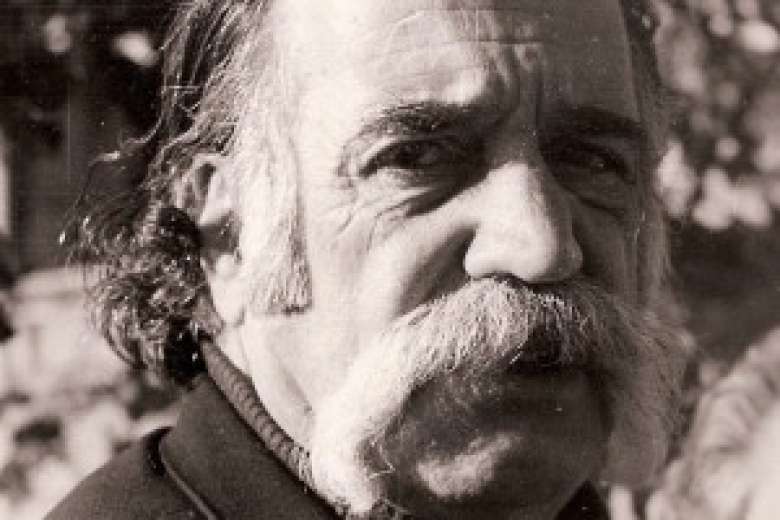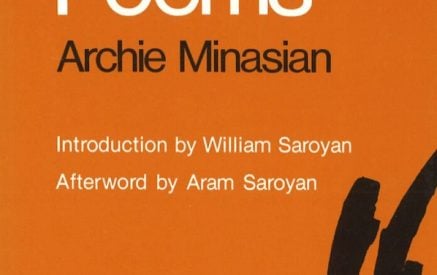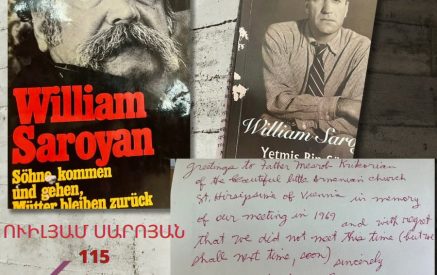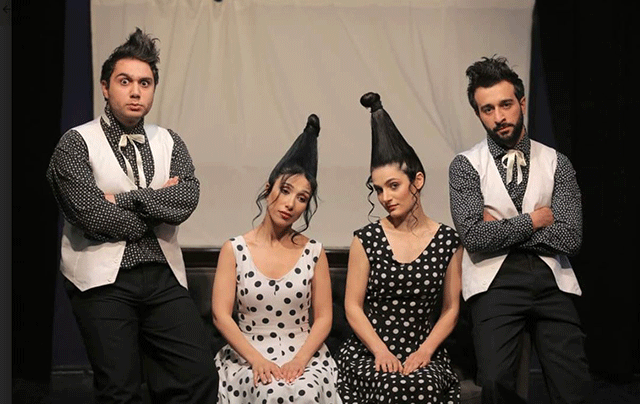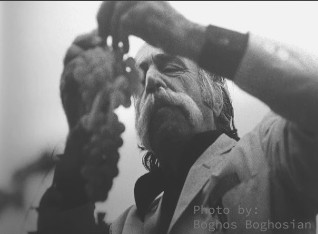by Arpi Sarafian
Special to the Mirror-Spectator
“Today he’s forgotten, the most forgotten famous writer of the 20th century.”
Read also
Mark Arax
The reception of a literary text would probably be different if we did not espouse various theories to read literature. In other words, if we approached the text as “common readers,” to invoke the title of Virginia Woolf’s collection of Essays, The Common Reader, we might bring appreciation back into our reading and reclaim “the pleasure of the text.” “The common reader,” writes Woolf, “differs from the critic and the scholar. . . . He reads for his own pleasure rather than to impart knowledge or correct the opinions of others.” This is the reader that Dr. Johnson, the revered 18th-century critic and writer, from whom Woolf borrows the notion of the common reader, “rejoice[s] to concur with.”
It is no secret that for an academic readership literary theory, that is the adoption of various critical perspectives to analyze literary texts, influences the reception of an author’s work. Theory can be very useful. Each new perspective, such as feminist or psychoanalytical, helps us get new insights into the meaning of a text. Yet, adopting a specific perspective as an analytical tool could also “force” a certain “meaning” onto the text to support the theory. More importantly, the emphasis on theory excludes readers who are, in Dr. Johnson’s words, “uncorrupted by literary prejudices and the dogmatism of learning.” These are the readers through whose common sense “must be finally decided all claim to poetical honors,” notes Dr. Johnson.
Academia plays an important role in mediating the popular reception of a text as well. In the United States, the dominance from the 1930s to the 1960s of New Criticism, a critical perspective that separates the work from its author and the context in which the work was produced, may have had something to do with Saroyan’s oeuvre falling out of favor. Much of Saroyan’s writing is “simple” and does not require the close textual analysis that texts with more complicated structures and imagery do to interpret. Thus, an author who was awarded the Pulitzer Prize for his play “The Time of Your Life” and whose The Human Comedy was required reading in high schools, is no longer on the reading lists of many academic departments.
Times change and the standards that guide our reading change with the times. The trend to contextualize in contemporary literary study should make a comeback for Saroyan inevitable. When the socio-cultural context, such as consideration of history, gender, class, ethnicity etc., becomes part of the discussion of the “meaning” of a text, works that, for example, explore the struggles of immigrants trying to construct a new life caught between cultures and continents, also become part of the discussion. The rootlessness, the sense of loss, the homesickness, the loneliness and the sadness of these immigrants are very much part of Saroyan’s stories.
The focus on context, as opposed to text, may also make it possible to include in the curriculum a writer who is not of Anglo-Saxon origin. As I have argued elsewhere, the majority-minority mentality in the United States has relegated “ethnic” writers to ethnic literature classes. Being of Armenian descent, Saroyan is classified as “minority,” in a so-called Anglo-Saxon “majority” culture, and thus pushed to the margins.
Saroyan’s writing appeals not because it lends itself to a certain reading strategy, but because it insists on the goodness and the beauty in the hearts of all men. “I know how full of goodness this life is. And that’s a good thing to know,” says Joe who, in “The Time of Your Life,” sits at a table in Nick’s bar drinking champagne, “but as always completely under control; only sharper.” Seeking goodness everywhere and yearning to live life as it could be lived is not a flight from the suffering of humanity. Indeed, in Saroyan’s world, death, loss and the sorrows and the sadness of life are ever-present. They are simply not dwelt upon. This is how Saroyan describes Harry, an awkward and funny character in the play: “His philosophy is simple and beautiful. The world is sorrowful. The world needs laughter. Harry is funny. The world needs Harry. Harry will make the world laugh.” This “simple and beautiful” philosophy permeates Saroyan’s entire oeuvre. In “The Summer of The Beautiful White Horse,” in the short story collection My Name Is Aram, Uncle Khosrove, seven thousand miles away from home, is homesick, but he “pay[s] no attention to it.” The Garoghlanians and the other families in the stories are poor but they play music, they sing and they laugh together. Saroyan wants “to help make the world happy again,” to borrow Harry’s words. In The Human Comedy, “Be happy! Be happy! I am unhappy but you must be happy,” shouts the melancholy grocer of Ara’s Market in exasperation, when his son rejects everything he gives him to make him happy.
The Human Comedy delivers a message of love in the midst of a war. After she learns of her son Marcus’ death in the war, Mrs. Macaulay, although “sick to death,” “smiles at the soldier,” her dead son’s friend in the army, and asks him to “please come in and let us show you around the house.” In contrast, her son Homer, who delivers news of soldiers “killed in action” all day, tells the old telegraph operator, “If my brother is killed in this stupid War, I shall spit at the world. I shall hate it forever.” Nonetheless, one leaves the novel with Mrs. Macauley’s words to her son, “It’s natural for fathers and mothers to be afraid of the world for their children but there’s nothing for them to be afraid of . . . Try to love everyone you meet.”
A message of love is always relevant. To highlight this relevance, Mark Arax, the award-winning writer from Fresno, in collaboration with Valley Public Radio, put together a podcast, “The Time of Our Life” (2020), which consists of seven episodes featuring Saroyan’s short stories as read by San Joaquin Valley authors. The series is a labor of love. The contributors’ love for Fresno, William Saroyan’s birthplace, their love of the author himself, and their love of language and writing, come through. One hopes that the podcast will open the door to exploring the technological innovations available today — new platforms, web sites, social media — to bring attention to Saroyan’s work.
If Saroyan’s writing is “simple,” it is the profound “simplicity” of a child’s vision which is uncorrupted by the lies, the hypocrisies and the hatreds of the grown-up world. Saroyan describes the smile of the four-year old Ulysses Macauley in The Human Comedy, as the “gentle, wise, secret smile of the Macauley people which said Hello to all things.” When Ulysses’s older brother, 14-year old Homer Macauley, applies for a job at the town’s telegraph station, “I shall expect of you a depth of understanding one may not expect from men past the age of twelve,” the old telegraph operator tells him. Perhaps, if grown-ups retained some of the innocence of the child, something of his “naïve” wisdom, the world would be a better place to live in.
I would like to add a note about the misconception that Armenians appreciate Saroyan’s writing because of Saroyan’s Armenian origins. It is probably true that there is not a single Armenian who cannot recite the famous Saroyan lines, “I should like to see any power of the world destroy this race, this small tribe of unimportant people. . . Go ahead, destroy Armenia. See if you can do it.” Yet, many Armenians I have spoken to have not read even a single work by Saroyan. One does not have to be Armenian to appreciate an author whose relevance transcends time and place. Saroyan well knew that “my work will be discovered again and again and again.” Indeed, the choice of classical names for his characters and their setting in The Human Comedy must be an indication of Saroyan’s awareness of the universal appeal of his writing. Ithaca is the name of the hometowns of both Odysseus, the protagonist of Greek poet Homer’s celebrated epic poem, The Odyssey, and of Homer, the main character of Saroyan’s novel. Homer’s 4-year-old brother’s name, Ulysses, is the Roman equivalent of the Greek Odysseus, giving the novel the universality of the epic.
I must concur with Dr. Johnson and with Virginia Woolf that reading with one’s own instincts, with no mediation, yields the greatest pleasure. We may just have made complexity a virtue for too long. And if the larger cultural and social issues are connected to literary texts, as is contended today, we might as well read as Armenians, and read with the blessing of the Establishment.




















































